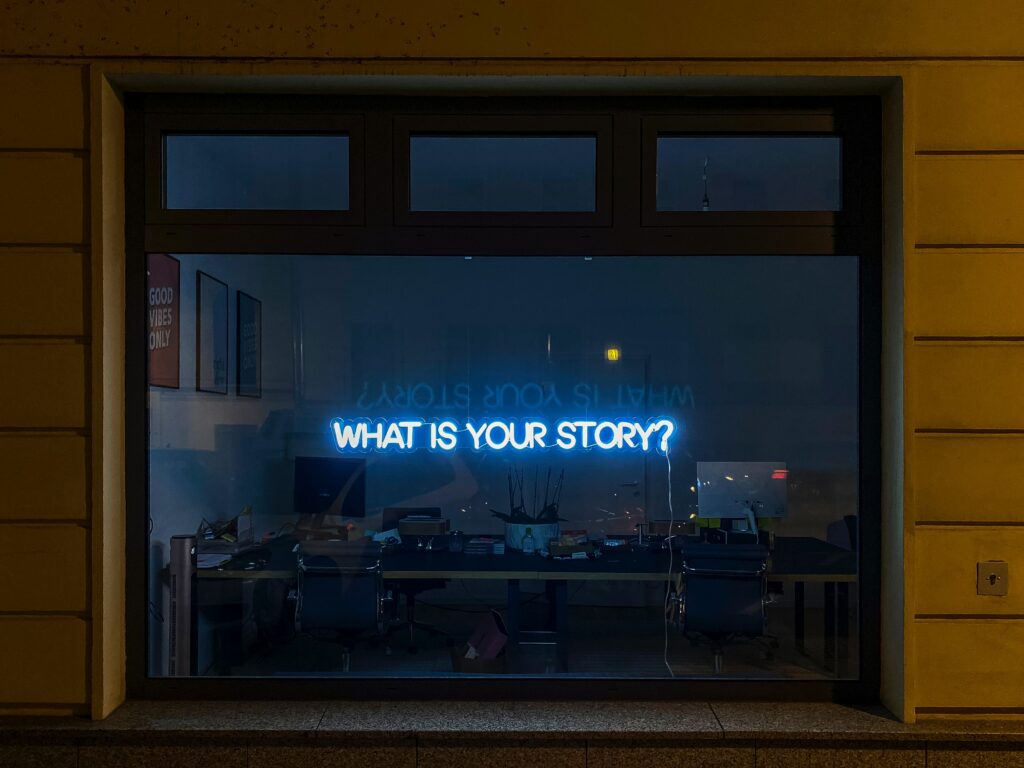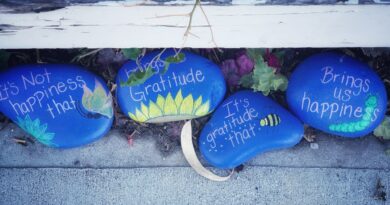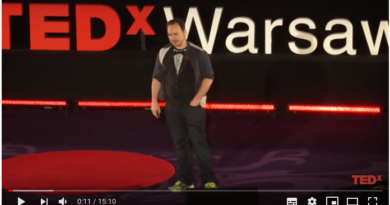Photo by Etienne Girardet on Unsplash
Neste vídeo, Olly Richards nos explica em detalhes a sua estratégia de aprendizado de idiomas utilizando histórias.
| Audio | |
|---|---|
Normal | Slow |
| English Transcript | Tradução |
| What if you could learn any new language in just a few months using stories?. | E se você pudesse aprender qualquer novo idioma em apenas alguns meses usando histórias?. |
| That's right, simple stories. | Isso mesmo, histórias simples. |
| Sounds fun, right?. | Parece divertido, certo?. |
| It's also easier than you think. | Também é mais fácil do que você pensa. |
| In fact, I've learned many new languages myself using stories and in this video I'm going to show you how it's done. | Na verdade, eu mesmo aprendi muitos idiomas novos usando histórias e neste vídeo vou mostrar como se faz. |
| This is perfect for you if you're looking for a more fun, more natural, more effective way to learn languages. | Isso é perfeito para você se estiver procurando uma maneira mais divertida, natural e eficaz de aprender idiomas. |
| And make sure you stay till the end, because I'm going to give you a full list of resources that you can start using today to learn a language with stories. | E certifique-se de ficar até o final, porque vou lhe dar uma lista completa de recursos que você pode começar a usar hoje para aprender um idioma com histórias. |
| Sounds good, you will learn the science of stories, why your brain loves stories, how stories help you learn languages, and lastly, the pretty simple, three-part method, that you can use to learn any new language with stories. | Parece bom, você aprenderá a ciência das histórias, por que seu cérebro adora histórias, como as histórias o ajudam a aprender idiomas e, por último, o método bastante simples de três partes, que você pode usar para aprender qualquer novo idioma com histórias. |
| Now, traditionally languages are taught with textbooks, classroom lectures and tests but what if that isn't the way your brain learns languages best?. | Agora, tradicionalmente, os idiomas são ensinados com livros didáticos, palestras em sala de aula e testes, mas e se essa não for a maneira como seu cérebro aprende melhor os idiomas? |
| What if you don't learn languages by deliberately studying them, but what if instead your brain can learn a language naturally by reading and listening?. | E se você não aprender idiomas estudando-os deliberadamente, mas e se, em vez disso, seu cérebro puder aprender um idioma naturalmente, lendo e ouvindo? |
| It's quite a crazy idea, right?. | É uma idéia bem louca, certo? |
| Now, if you're gonna get why this really works, we need to go back to basics and talk about stories, because storytelling is our oldest form of communication, from early cave drawings to hieroglyphics in ancient Egypt. | Agora, se você quiser entender por que isso realmente funciona, precisamos voltar ao básico e falar sobre histórias, porque contar histórias é nossa forma mais antiga de comunicação, desde os primeiros desenhos nas cavernas até os hieróglifos no antigo Egito. |
| We've used stories for entertainment, education, preserving culture, the list goes on, and in the modern world stories are literally all around us and we've invented new purposes too, so you'll find stories being used in entertainment, in business, in politics. | Usamos histórias para entretenimento, educação, preservação da cultura, a lista continua, e no mundo moderno as histórias estão literalmente ao nosso redor e também inventamos novos propósitos, então você encontrará histórias sendo usadas no entretenimento, nos negócios, na política. |
| I mean, take religion for example. | Quero dizer, tome a religião, por exemplo. |
| Religions don't just tell you what to believe, they tell you the stories of Buddha, Jesus, the Prophet Muhammad and what they got up to and those stories have been working for them for thousands of years. | As religiões não dizem apenas em que acreditar, elas contam as histórias de Buda, Jesus, o profeta Maomé e o que eles fizeram, e essas histórias têm funcionado para eles há milhares de anos. |
| That's why you'll also find stories used a lot for teaching. | É por isso que você também encontrará histórias muito usadas para ensinar. |
| So schools get you to read great novels to teach you important lessons about life, parents tell children stories to teach them about the world. | Assim, as escolas te fazem ler grandes romances para ensinar lições importantes sobre a vida, os pais contam histórias para as crianças para ensiná-las sobre o mundo. |
| But stories are not just for kids. | Mas as histórias não são apenas para crianças. |
| Harvard business school uses stories. | A escola de negócios de Harvard usa histórias. |
| They teach business using the case study method, which is basically stories about the successes and failures of other businesses. | Eles ensinam negócios usando o método de estudo de caso, que é basicamente histórias sobre os sucessos e fracassos de outros negócios. |
| So we use stories to make learning more effective, and sure enough, when you learn through stories, you can measure this in the brain, because stories activate parts of your brain that are not generally engaged when you're learning in a traditional fact-based way. | Portanto, usamos histórias para tornar o aprendizado mais eficaz e, com certeza, quando você aprende por meio de histórias, pode medir isso no cérebro, porque as histórias ativam partes do seu cérebro que geralmente não estão envolvidas quando você está aprendendo de forma tradicional, com base em fatos. |
| Parts like the left temporal cortex, the frontal and parietal cortices, the auditory cortex, and these parts of the brain are used for things like understanding language, the association of ideas, memory and attention. | Partes como o córtex temporal esquerdo, os córtices frontal e parietal, o córtex auditivo e essas partes do cérebro são usadas para coisas como compreensão da linguagem, associação de ideias, memória e atenção. |
| Basically when you learn with stories you're mixing two things together: rational information with experiential parts of the brain and what this does is it forms neural connections which when repeated gets strengthened and result in longer term memory and that longer term memory part is key. | Basicamente, quando você aprende com histórias, você está misturando duas coisas: informações racionais com partes experienciais do cérebro e o que isso faz é formar conexões neurais que, quando repetidas, são fortalecidas e resultam em memória de longo prazo e essa parte de memória de longo prazo é fundamental . |
| The psychologist Jerome Bruno suggested that we are 22 times more likely to remember facts that are contained within a story. | O psicólogo Jerome Bruno sugeriu que temos 22 vezes mais chances de lembrar de fatos contidos em uma história. |
| Point is, learning through story is a powerful cocktail of meaning, memory and emotion, and it's quite different from learning plain facts which are so easily forgotten. | A questão é que aprender através da história é um poderoso coquetel de significado, memória e emoção, e é bem diferente de aprender fatos simples que são facilmente esquecidos. |
| By the way, if you're enjoying this, then make sure you like this video, subscribe to the channel and hit that notification bell, so you stay up to date with more language learning videos. | A propósito, se você está gostando disso, certifique-se de curtir este vídeo, se inscrever no canal e ativar o sininho de notificação, para ficar atualizado com mais vídeos de aprendizado de idiomas. |
| So, that's the science behind stories. | Então, essa é a ciência por trás das histórias. |
| But what makes stories such a powerful way to learn foreign languages?. | Mas o que torna as histórias uma maneira tão poderosa de aprender línguas estrangeiras? |
| Well, remember that learning a language does not just mean learning new words or grammar rules, knowing a language really means understanding the culture and being able to interact with other people. | Bem, lembre-se que aprender um idioma não significa apenas aprender novas palavras ou regras gramaticais, conhecer um idioma realmente significa entender a cultura e poder interagir com outras pessoas. |
| In other words you've got to be able to use the language in real situations. | Em outras palavras, você precisa ser capaz de usar a linguagem em situações reais. |
| Real life situations and stories help you do this in a few important ways. | Situações e histórias da vida real ajudam você a fazer isso de algumas maneiras importantes. |
| First of all, when you learn these stories, you're drawing on your existing knowledge of the world. | Em primeiro lugar, quando você aprende essas histórias, está se baseando em seu conhecimento existente do mundo. |
| Stories take place in the world that you already know and understand, which gives you something very important to hold on to and refer to. | As histórias acontecem no mundo que você já conhece e entende, o que lhe dá algo muito importante para se agarrar e se referir. |
| When you're learning the nuts and bolts of the new language, stories also have meaning, sort of mean something, right?. | Quando você está aprendendo os detalhes da nova linguagem, as histórias também têm significado, meio que significam alguma coisa, certo? |
| And that means that whatever you learn has purpose, so you're learning to communicate meaningfully from the start. | E isso significa que tudo o que você aprende tem um propósito, então você está aprendendo a se comunicar de forma significativa desde o início. |
| And in stories, of course, every word appears in context, there are no lists of words like you get in textbooks, everything is in context, which means you'll learn the words more easily and you'll also know how to use them, so what words go with what other words. | E nas histórias, é claro, cada palavra aparece em contexto, não há listas de palavras como nos livros didáticos, tudo está em contexto, o que significa que você aprenderá as palavras com mais facilidade e também saberá como usá-las, quais palavras combinam com quais outras palavras. |
| There's much more as well. | Há muito mais também. |
| So, for example, a good story keeps you interested, so that you're more motivated to learn stories, teach lessons about culture. | Então, por exemplo, uma boa história te mantém interessado, para que você fique mais motivado para aprender histórias, ensinar lições sobre cultura. |
| Stories also get a reaction out of you and this emotional involvement helps make a language a more authentic part of your life. | As histórias também provocam uma reação em você e esse envolvimento emocional ajuda a tornar a linguagem uma parte mais autêntica da sua vida. |
| Look, learning through story is no longer just black and white information on the pages of a textbook. | Veja, aprender por meio de histórias não é mais apenas informações em preto e branco nas páginas de um livro didático. |
| Every detail of the language appears in glorious technicolor, if that's still a thing. | Cada detalhe da linguagem aparece em glorioso tecnicolor, se isso ainda existe. |
| Stories help you to focus on communication and meaning, and give you a deep knowledge of the language, just the same way as children learn their first language. | As histórias ajudam você a se concentrar na comunicação e no significado, além de fornecer um conhecimento profundo do idioma, da mesma forma que as crianças aprendem sua primeira língua. |
| Okay, enough theory. | Ok, chega de teoria. |
| How do you actually learn languages with stories?. | Como você realmente aprende idiomas com histórias? |
| Well, after learning eight languages, I've codified this into a method which I call the "Story Learning Method", and the "Story Learning Method" has three parts to it. | Bem, depois de aprender oito idiomas, codifiquei isso em um método que chamo de "Método de Aprendizagem de Histórias", e o "Método de Aprendizagem de Histórias" tem três partes. |
| Immerse, learn and activate. | Imersão, aprendizado e ativação. |
| Now, immerse is when you immerse yourself in the language with stories. | Imersão é quando você mergulha no idioma com histórias. |
| Learn is when you learn things from the story and then activate. | Aprender é quando você aprende coisas da história e então ativa. |
| Well, this is where you practice what you've learned and put it into action. | Bem, é aqui que você pratica o que aprendeu e coloca em ação. |
| Now, to demonstrate how this works, I'll walk you through a project I did to learn Italian a few years back, which lasted about three months, and where I was able to go from complete beginner to fairly conversationally fluent using, you guessed it, stories. | Para demonstrar como isso funciona, vou orientá-lo em um projeto que fiz para aprender italiano há alguns anos, que durou cerca de três meses, e no qual fui capaz de ir de iniciante completo a bastante fluente em conversação, você adivinhou, com histórias. |
| So, if you remember, step one is to immerse yourself in the language, and that's all I did for the first month. | Se você se lembra, o primeiro passo é imersão no idioma, e foi tudo o que fiz no primeiro mês. |
| The aim was to get as much immersion or input as possible, so I spent as much time as I could reading Italian and listening to Italian and that is all I did. | O objetivo era obter o máximo de imersão ou exposição possível, então passei o máximo de tempo lendo italiano e ouvindo italiano e foi tudo o que fiz. |
| I'm not taking lessons here, I'm not learning the grammar or anything like that. | Não estou tendo aulas aqui, não estou aprendendo a gramática ou qualquer coisa assim. |
| I'm not working with a teacher, I'm simply reading the stories. | Não estou trabalhando com um professor, estou simplesmente lendo as histórias. |
| And what you do is simply read and listen, over and over and over. | E o que você faz é simplesmente ler e ouvir, repetidamente. |
| Now, if you're wondering how you can read anything if you're a complete beginner, then the answer is that, when you're a complete beginner you need to use really, kind of basic material, basic simple bordering material, right, at the start. | Agora, se você está se perguntando como você pode ler qualquer coisa se você é um iniciante completo, então a resposta é que, quando você é um iniciante completo, você precisa usar um material básico, material básico simples, certo, no começo. |
| So, I was finding textbooks from my local library and reading the little dialogues that you get in these textbooks. | Então, eu procurava por livros na minha biblioteca local e lia os pequenos diálogos que encontrava nesses livros. |
| They are a bit dull at first, but the key thing is, they're written for beginners, so you can understand just enough. | Eles são um pouco chatos no começo, mas o principal é que eles foram escritos para iniciantes, para que você possa entender o suficiente. |
| You'll need to look up a few words here and there, but apart from that, you're just taking these little dialogues or stories in their textbooks and you're reading them over and over, 10, 20, 30 times. | Você precisará procurar algumas palavras aqui e ali, mas além disso, você está apenas pegando esses pequenos diálogos ou histórias em seus livros e lendo-os repetidamente, 10, 20, 30 vezes. |
| That's your job at the beginning, just to read and listen and what you're doing is immersing yourself in the sounds of the language. | Esse é o seu trabalho no início, apenas ler e ouvir e o que você está fazendo é mergulhar nos sons do idioma. |
| And you're probably thinking: "Well, how can I learn anything from this if I'm if I'm just reading, like, where's the studying, where's the learning?", but remember the point here in phase one is not to learn but the point here is to immerse yourself in the language so that your brain has the conditions it needs to learn the language all by itself, just as if you lived in the country. | E você provavelmente deve estar pensando: "Bem, como posso aprender alguma coisa com isso se estou apenas lendo, tipo, onde está o estudo, onde está o aprendizado?", mas lembre-se de que o ponto aqui na fase um não é aprender, o ponto aqui é mergulhar no idioma para que seu cérebro tenha as condições necessárias para aprender o idioma sozinho, como se você morasse no país. |
| Just remember everything we discussed about the brain earlier by pushing yourself to understand the story. | Apenas lembre-se de tudo o que discutimos sobre o cérebro anteriormente, esforçando-se para entender a história. |
| Even if it is in another language, you're activating all these wonderful parts of your brain that we talked about earlier, and what you'll find is that the more you read, the more you listen, your brain will start to just understand stuff. | Mesmo que seja em outro idioma, você está ativando todas essas partes maravilhosas do seu cérebro sobre as quais falamos anteriormente, e o que você descobrirá é que quanto mais você lê, quanto mais você ouve, seu cérebro começará a entender as coisas. |
| It should be obvious that throughout this process, there is a ton that you are not understanding from your reading. | Deve ser óbvio que durante todo este processo, há uma tonelada que você não está entendendo de sua leitura. |
| In fact through this you don't understand most of what you're reading, but it's not about what you don't understand, it's about what your brain is learning to understand. | Na verdade, com isso você não entende a maior parte do que está lendo, mas não é sobre o que você não entende, é sobre o que seu cérebro está aprendendo a entender. |
| And that ratio of what you do and don't understand, gradually changes. | E essa proporção do que você faz e não entende, muda gradualmente. |
| See, once you've experienced this, you'll know it to be true, but I understand that it can sound a little bit woo-woo before that and also you're not reading with translations, no translations, because as soon as you read with translations, you're removing all of the struggle from the process and your brain learns and grows when it struggles and grapples to understand. | Veja, uma vez que você experimentou isso, você saberá que é verdade, mas eu entendo que pode soar um pouco woo-woo antes disso e também você não está lendo com traduções, sem traduções, porque assim que você lê com traduções, você está removendo toda a luta do processo e seu cérebro aprende e cresce quando luta e batalha para entender. |
| Anyway, that's all I did for the first month learning Italian. | De qualquer forma, foi tudo o que fiz no primeiro mês aprendendo italiano. |
| You start with really simple material, that's written for beginners, and then you gradually work your way up to harder material but always reading and listening to stories in the same way. | Você começa com um material realmente simples, escrito para iniciantes, e então gradualmente avança para um material mais difícil, mas sempre lendo e ouvindo histórias da mesma maneira. |
| Now, remember, at the end I'm going to give you a full list of resources that you can use for this kind of learning. | Agora, lembre-se, no final eu vou lhe dar uma lista completa de recursos que você pode usar para esse tipo de aprendizado. |
| So this is the first part of the process, and what you're doing here is, you're building a foundation in the language. | Esta é a primeira parte do processo, e o que você está fazendo aqui é construir uma base na linguagem. |
| Your brain is basically learning to exist in this new language. | Seu cérebro está basicamente aprendendo a existir nessa nova linguagem. |
| But as you're listening to this, you're probably still thinking: "Yeah, but Ollie, how can I actually learn, I mean, it can't just be reading, right, where do I learn the language?". | Mas enquanto você está ouvindo isso, você provavelmente ainda está pensando: "É, mas Ollie, como eu posso realmente aprender, quer dizer, não pode ser apenas lendo, certo, onde eu aprendo o idioma?". |
| Well, that's why the second phase of story learning is learn. | Bem, é por isso que a segunda fase do aprendizado de histórias é aprender. |
| So, as I was reading all this Italian and enjoying it more and more as I started to understand the stories, I started to have questions about the language. | Então, conforme eu ia lendo todo esse italiano e curtindo cada vez mais conforme comecei a entender as histórias, comecei a ter dúvidas sobre o idioma. |
| There's that word again, it's come up five times, what does it mean, why am I seeing all these different endings to these words and what's going on with the pronunciation of this strange word over here, all these questions. | Tem essa palavra de novo, ela apareceu cinco vezes, o que significa, por que estou vendo todas essas terminações diferentes para essas palavras e o que está acontecendo com a pronúncia dessa palavra estranha aqui, todas essas perguntas. |
| So, in this phase, in the learn phase, I started to investigate things that were interesting to me, so I would look up words in the dictionary. | Então, nessa fase, na fase de aprender, eu comecei a pesquisar coisas que me interessavam, então eu procurava palavras no dicionário. |
| If there was a word from the story that I really wanted to know, or where I saw something going on with some grammar, I would look up that grammar in a grammar book to see what was going on. | Se houvesse uma palavra da história que eu realmente quisesse saber, ou onde eu visse algo acontecendo com alguma gramática, eu procuraria essa gramática em um livro de gramática para ver o que estava acontecendo. |
| And in the case of Italian, there was a fair bit of grammar that was confusing me and I wanted to understand it. | E no caso do italiano, havia um pouco de gramática que estava me confundindo e eu queria entendê-la. |
| So, I just looked it up. | Então, eu pesquisava. |
| So I was starting to learn things in a more traditional sense, but the key thing here is that everything I'm learning in this stage is emerging from the story. | Eu estava começando a aprender as coisas em um sentido mais tradicional, mas o principal aqui é que tudo que estou aprendendo neste estágio está emergindo da história. |
| I wait until I really want to know something and then I look it up and this means that everything I learn is really, really, powerful, because I'm ready for it. | Eu espero até que eu realmente queira saber alguma coisa e então eu procuro e isso significa que tudo que eu aprendo é muito, muito, poderoso, porque eu estou pronto para isso. |
| And this is what it means for stories to engage your whole brain in the learning process. | E é isso que significa que as histórias envolvam todo o seu cérebro no processo de aprendizagem. |
| It's very, very different from traditional textbooks or apps or basically anything else where you're learning all the grammar and all the vocabulary in advance. | É muito, muito diferente dos livros ou aplicativos tradicionais ou basicamente qualquer outra coisa em que você está aprendendo toda a gramática e todo o vocabulário com antecedência. |
| Right at the start, just kind of presented by the teacher as if they're saying: "Okay, here is a complete menu of everything in the language and you're going to learn it all now in advance up front. | Logo no início, meio que apresentado pelo professor como se estivesse dizendo: "Ok, aqui está um menu completo de tudo no idioma e você vai aprender tudo agora com antecedência. |
| With story learning, the story comes first, just like it does for kids when parents read bedtime stories to their children. | Com o aprendizado de histórias, a história vem em primeiro lugar, assim como acontece com as crianças quando os pais lêem histórias de ninar para seus filhos. |
| The kids don't understand anything at first, but their natural curiosity guides them and they want to learn and so, bit by bit, they do and the amazing thing about this, the reality of this way of learning, is that new words stick far more easily from stories. | As crianças não entendem nada no começo, mas sua curiosidade natural as guia e elas querem aprender e assim, pouco a pouco, elas vão entendendo e o incrível disso, a realidade dessa forma de aprender, é que nos lembramos das novas palavras muito mais facilmente a partir de histórias. |
| You also learn the grammar far more easily, because you've already seen everything over and over a ton of times, and you are ready to learn them naturally. | Você também aprende a gramática com muito mais facilidade, porque já viu tudo várias vezes e está pronto para aprendê-las naturalmente. |
| Now, step three is activate. | Agora, o passo três é ativar. |
| And this is where you begin to activate what you learn by actually using the language. | E é aqui que você começa a ativar o que aprende usando realmente a linguagem. |
| So, up until now, everything has been happening inside your head, right?. | Então, até agora, tudo estava acontecendo dentro da sua cabeça, certo? |
| Reading, listening, a bit of learning and you've probably been thinking to yourself, "But you know, how do I learn to speak from all this reading? Even if I'm learning, how do I actually start to speak, because my goal is to speak this language Ollie". | Lendo, ouvindo, um pouco de aprendizado e você provavelmente já pensou consigo mesmo: "Mas você sabe, como eu aprendo a falar com toda essa leitura? Mesmo que eu esteja aprendendo, como eu realmente começo a falar, porque meu objetivo é falar essa língua Ollie". |
| Well, inside your head you're building up this massive reservoir of knowledge and when you've got all this knowledge in your head, what do you think the natural next step is?. | Bem, dentro de sua cabeça você está construindo esse enorme reservatório de conhecimento e quando você tem todo esse conhecimento em sua cabeça, qual você acha que é o próximo passo natural? |
| Yeah, you guessed it, the natural next step is to start to use the language. | Sim, você adivinhou, o próximo passo natural é começar a usar a língua. |
| So, in my Italian project that's exactly what I did. | Então, no meu projeto italiano foi exatamente o que eu fiz. |
| Remember, I'd spent an entire month just on the immerse phase. | Lembre-se, eu passei um mês inteiro apenas na fase de imersão. |
| In fact, I actually banned myself from speaking a word in Italian in that first month. | Na verdade, eu me proibi de falar uma palavra em italiano naquele primeiro mês. |
| No, I couldn't speak at all, not anything, just to prove that this approach works. | Não, eu não podia falar nada, absolutamete nada, só para provar que essa abordagem funciona. |
| But when I was ready, I had my first ever Italian lesson with a real person and the very first session, as you'd expect, it was a little bit ropey. | Mas quando eu estava pronto, tive minha primeira aula de italiano com uma pessoa real e a primeira sessão, como seria de esperar, foi um pouco complicada. |
| But ropey it's actually okay, because in the activate stage you need to take all of that knowledge in your head and quite literally activate it. | Mas na verdade está tudo bem, porque no estágio de ativação você precisa pegar todo esse conhecimento em sua cabeça e literalmente ativá-lo. |
| You know the stuff, but you need to practice, just getting it out of your mouth. | Você conhece as coisas, mas precisa praticar, tirar da sua boca. |
| So, I started having short daily sessions with my teacher, it wasn't much, 30 minutes a day. | Então, comecei a ter sessões diárias curtas com meu professor, não era muito, 30 minutos por dia. |
| What do you talk about in these sessions?. | Sobre o que você fala nessas sessões?. |
| Well, that's easy, you talk about the stories that you've been reading. | Bem, isso é fácil, você fala sobre as histórias que está lendo. |
| Tell your tutor what you've read, talk about the stories, use the words that you've been reading and learning. | Diga ao seu tutor o que você leu, fale sobre as histórias, use as palavras que você está lendo e aprendendo. |
| You'll never run out of things to talk about because you've been doing so much reading. | Você nunca vai ficar sem coisas para falar porque você tem lido muito. |
| That's the basis of the method. | Essa é a base do método. |
| And a little hack here is to actually send the stories you've been reading to your teacher in advance that they can have a look and they know what you've been reading. | E um pequeno truque aqui é realmente enviar as histórias que você está lendo para o seu professor com antecedência para que ele possa dar uma olhada e saber o que você está lendo. |
| And after five days of this, I noticed that things started to improve quite quickly. | E depois de cinco dias disso, notei que as coisas começaram a melhorar muito rapidamente. |
| And remember all these words that I was saying, I'd only learned them from one place: the reading, because I'd done nothing else. | E lembre-se de todas essas palavras que eu estava dizendo, só as aprendi em um lugar: a leitura, porque não tinha feito mais nada. |
| But what was most interesting is that I'd somehow managed to learn some very tricky Italian grammar too. | Mas o mais interessante é que eu de alguma forma consegui aprender uma gramática italiana muito complicada também. |
| I think I mentioned that to you in the second lesson, that prepositions, I'm very impressed because, with, you know, your knowledge of them, just because prepositions against it's a hard topic, I believe, in any language, because they're so different in each language. | Acho que mencionei isso para você na segunda lição, que as preposições, estou muito impressionado, porque, você sabe, seu conhecimento delas, só porque as preposições é um tópico difícil, eu acredito, em qualquer idioma, porque elas são tão diferentes em cada idioma. |
| But I think that the listening that you did, kind of give you kind of a frame, to use the prepositions and that's something that usually is instructed. | Mas eu acho que a escuta que você fez, meio que te dá uma espécie de quadro de referência, para usar as preposições e isso é algo que normalmente é instruído. |
| So, it's formally, you know, like taught by teachers, like. | Então, é formalmente, você sabe, como ensinado pelos professores. |
| And this really shows the power of story learning because in this case what we were talking about here, prep Italian prepositions, they are notoriously hard and they usually stump students of Italian for years. | E isso realmente mostra o poder do aprendizado de histórias porque, neste caso, o que estávamos falando aqui, preposições italianas, elas são notoriamente difíceis e geralmente atrapalham os alunos de italiano por anos. |
| But simply by spending so long learning through stories, I had managed to internalize the grammar and get it mostly correct. | Mas simplesmente por passar tanto tempo aprendendo por meio de histórias, consegui internalizar a gramática e acertá-la em sua maioria. |
| But anyway, there was still plenty of stuff that I wasn't getting right yet, because learning a language takes time. | Mas de qualquer forma, ainda havia muitas coisas que eu não estava acertando, porque aprender a language leva tempo. |
| And so after this I kept having these lessons with my tutor quite regularly and my main focus was just to activate using all the stuff I'd been learning. | E então, depois disso, continuei tendo essas aulas com meu tutor regularmente e meu foco principal era apenas ativar usando todas as coisas que estava aprendendo. |
| Talking about the stories, trying out the words and phrases that I'd learned from the stories, stretching out a bit and experimenting with using new grammar. | Falando sobre as histórias, experimentando as palavras e frases que aprendi com as histórias, alongando um pouco e experimentando o uso de uma nova gramática. |
| And of course, in these sessions you do get corrections from the teacher too, naturally. | E, claro, nessas sessões você também recebe correções do professor, naturalmente. |
| So, there's an element of crossover where you're learning a lot as well. | Então, há um elemento de cruzamento onde você está aprendendo muito também. |
| You're not just practicing the back and forth, you're learning too. | Você não está apenas praticando o vai-e-vem, você também está aprendendo. |
| And so with this, I'm completing this cycle of immerse, learn and activate. | E assim, com isso, estou completando esse ciclo de imersão, aprendizado e ativação. |
| So then, what's next?. | Então, o que vem a seguir? |
| This continues, you just carry on this cycle and remember that 80% of your time stays on immersion, because that's where all the learning comes from. | Isso continua, você continua nesse ciclo e lembra que 80% do seu tempo fica em imersão, porque é daí que vem todo o aprendizado. |
| All that wonderful reading and listening that you're doing, the thing that changes as your level improves and you can understand more is that you just start to read more widely you can start to move away from stories if you want, and start to read around your own areas of interest. | Toda essa leitura e audição maravilhosas que você está fazendo, o que muda à medida que seu nível melhora e você pode entender mais é que você começa a ler mais amplamente, pode começar a se afastar das histórias, se quiser, e começar a ler suas próprias áreas de interesse. |
| So, anyway to show how much I'd learned in just a couple of months, I started recording conversations that I had with people in Italian. | Então, de qualquer forma, para mostrar o quanto aprendi em apenas alguns meses, comecei a gravar conversas que tive com pessoas em italiano. |
| And then because I was doing this project for Youtube, I actually decided to travel to Italy and show that this "Story Learning Method" had the really practical outcome of being able to use the language in real life. | E então, porque eu estava fazendo esse projeto para o Youtube, decidi viajar para a Itália e mostrar que esse "Método de Aprendizagem de Histórias" tinha o resultado realmente prático de poder usar o idioma na vida real. |
| And it had absolutely nothing to do with wanting to go to Venice, nothing at all. | E não tinha absolutamente nada a ver com querer ir a Veneza, absolutamente nada. |
| But nevertheless, by the end of the project I've proven quite convincingly that in just a few months it's possible to learn a new language with stories, completely from home and to be able to get it to a point where you can speak the language, live the language and have the language as a part of your life. | Mas, no entanto, no final do projeto, provei de forma bastante convincente que em apenas alguns meses é possível aprender um novo idioma com histórias, completamente em casa e conseguir chegar a um ponto em que você possa falar o idioma, viver a língua e ter a língua como parte de sua vida. |
| And in case you're wondering if this works in any language, with some languages it will take longer for sure and with languages with different scripts, like Chinese or Japanese, you'll need to use romanization right at the beginning just to get started. | E caso você esteja se perguntando se isso funciona em qualquer idioma, com alguns idiomas levará mais tempo com certeza e com idiomas com scripts diferentes, como chinês ou japonês, você precisará usar a romanização logo no início. |
| But the method and the principle is the same, it's using stories to learn a new language by activating your core natural learning system and having a lot of fun along the way. | Mas o método e o princípio são os mesmos, usar histórias para aprender um novo idioma ativando seu sistema de aprendizado natural central e se divertindo muito ao longo do caminho. |
| Now I know this is very different from what you're used to and that is okay. | Agora eu sei que isso é muito diferente do que você está acostumado e tudo bem. |
| And so, to help you along as promised, I've got some resources for you. | E assim, para ajudá-lo como prometido, tenho alguns recursos para você. |
| First of all, if you want a list of great books and podcasts that you can use to try out the "Story Learning Method" then please go to the description below. | Em primeiro lugar, se você quiser uma lista de ótimos livros e podcasts que você pode usar para experimentar o "Método de Aprendizagem de Histórias", vá para a descrição abaixo. |
| You'll find a list of resources broken down by language. | Você encontrará uma lista de recursos divididos por idioma. |
| These are a mix of things that I've used myself to learn languages and also things that I've created myself too. | São uma mistura de coisas que eu mesmo usei para aprender idiomas e também coisas que eu mesmo criei. |
| Secondly if you want a bit more help to learn a new language with the "Story Learning Method", then you might like to look at my courses. | Em segundo lugar, se você quiser um pouco mais de ajuda para aprender um novo idioma com o "Método de Aprendizagem de Histórias", então você pode dar uma olhada nos meus cursos. |
| They are not free, they are paid courses, but they are your complete step-by-step program to learn a new language through stories including all the material that you need in one place. | Eles não são gratuitos, são cursos pagos, mas são o seu programa passo a passo completo para aprender um novo idioma por meio de histórias que incluem todo o material que você precisa em um só lugar. |
| So, all you have to do is just settle in and enjoy learning. | Então, tudo o que você precisa fazer é se acomodar e aproveitar o aprendizado. |
| There'll be a link to those in the description and up here as well too. | Haverá um link na descrição e aqui também. |
| Lastly if you enjoyed this video, please leave me a comment below and I want you to let me know the one biggest thing or idea or principle that you took from this video or else the biggest question you've got about the magic of learning languages through stories. | Por fim, se você gostou deste vídeo, por favor, deixe-me um comentário abaixo e eu quero que você me diga qual foi a maior coisa ou ideia ou princípio que você tirou deste vídeo ou então a maior pergunta que você tem sobre a magia de aprender idiomas através de histórias. |
Contagem de palavras
A tabela abaixo exibe as palavras encontradas neste vídeo, bem como o número de vezes em que aparecem.
Veja também: Para que serve esta tabela?









